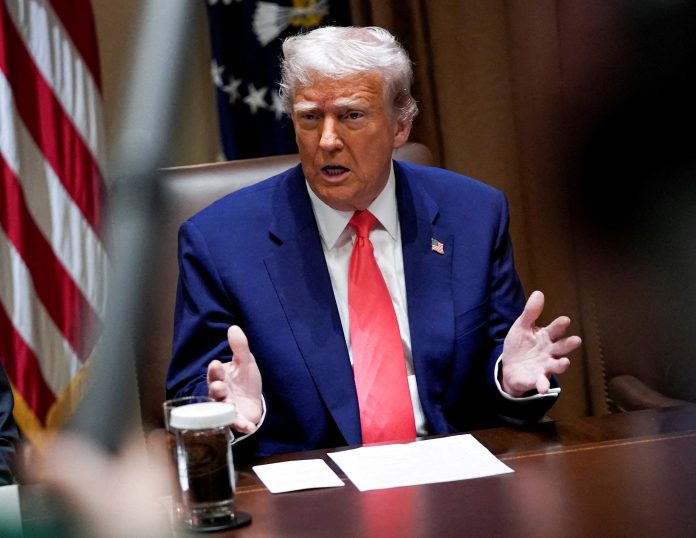Washington, D.C. – A former U.S. State Department advisor has suggested the Trump administration may be laying the groundwork for landmark talks with Al-Shabaab, signaling a potential, radical shift in U.S. policy toward the Al-Qaeda-affiliated group in Somalia.
The assertion comes amid a military stalemate in the long-running conflict. It aligns with President Donald Trump’s stated ambition to end “endless wars” through negotiation.
Hamza Warfa, who served as a senior advisor in the State Department under the Biden administration, told Universal Somali TV that the long-standing military-focused approach to defeating Al-Shabaab has reached its limit. He argued that the Trump administration could be preparing for direct or indirect dialogue with the insurgents.
“There are signs that talks could begin now,” said Warfa, a prominent Somali American figure. He stressed the urgent need for a political settlement. He criticized the heavy, ongoing investment in a military campaign that has failed to secure a decisive victory on the ground.
Currently, there has been no official comment from the White House, the State Department, or the Somali government regarding potential talks. Al-Shabaab has also not responded to the suggestion.
A major policy hurdle
Any engagement with Al-Shabaab would represent a dramatic reversal of long-standing U.S. policy. The United States officially designated Al-Shabaab a Foreign Terrorist Organization (FTO) in 2008, a status that legally prohibits providing “material support or resources” to the group, with negotiation often viewed as a form of engagement.
For years, the U.S. has conducted a counter-terrorism campaign in Somalia, primarily through drone strikes carried out by U.S. Africa Command (AFRICOM) and by providing funding and training for both the Somali National Army and the African Union Transition Mission in Somalia (ATMIS).
However, Warfa, who plans to meet with Trump administration officials to advocate for formal peace talks, argues that this strategy is no longer sufficient. His comments reflect a growing sentiment among some analysts that the conflict, which has destabilized the Horn of Africa for nearly two decades, requires a political rather than a purely military solution.
The suggestion of dialogue comes as the Somali government’s major offensive against Al-Shabaab shows signs of stalling. Launched in 2022, the campaign initially saw significant success, with the Somali army and allied local clan militias, known as Macawiisley, liberating large territories.
Despite these earlier gains, Al-Shabaab has proven resilient. The group has regrouped and launched effective counter-offensives in 2025, retaking some towns and demonstrating its continued ability to contest control of large rural areas and launch deadly attacks across the country, according to reports from security analysts and the Combating Terrorism Center at West Point.
This grinding war of attrition, coupled with the scheduled drawdown of ATMIS forces, has created a precarious security situation, adding urgency to the search for alternative solutions.
A precedent in Afghanistan
While direct talks with a designated FTO would be controversial, it is not without precedent. The U.S. maintained a similar non-negotiation policy with the Taliban in Afghanistan for years before engaging in direct talks in Doha, Qatar. Those negotiations, initiated under the Trump administration, ultimately led to the 2020 agreement for the withdrawal of U.S. troops from Afghanistan.
Supporters of a new approach in Somalia could point to the Taliban talks as a model for engaging an entrenched insurgency to end a protracted conflict. President Trump has consistently voiced a preference for deal-making over long-term military deployments, a core tenet of his “America First” foreign policy.
As he stated during his first term and in subsequent campaigns, his goal is to extricate the United States from costly and seemingly unwinnable foreign conflicts. For now, the prospect of U.S.-Shabaab talks remains speculative. However, the public suggestion by a former government insider indicates that a once-unthinkable policy debate may be emerging from the shadows.


